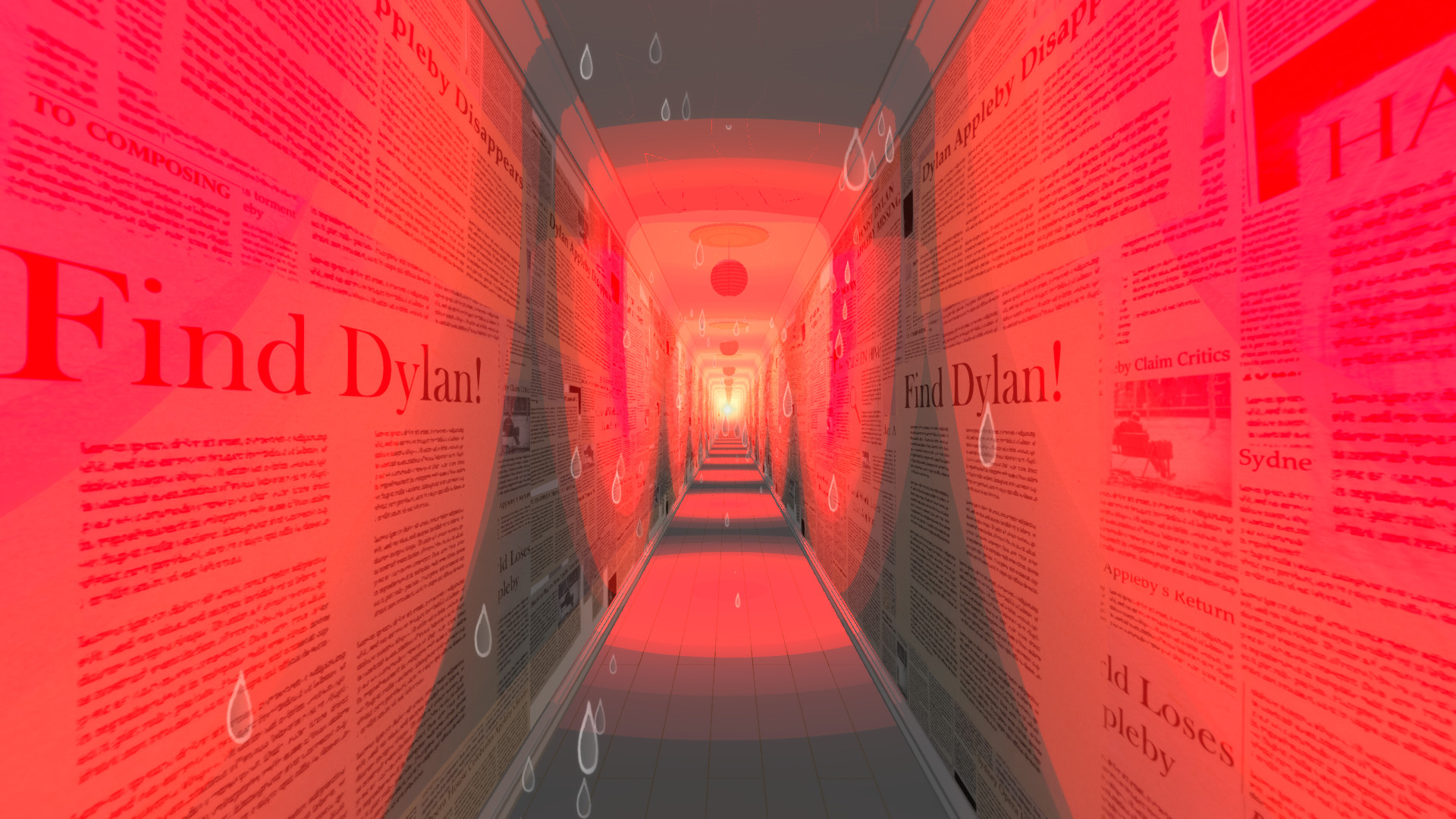The everyday horror of Before I Forget is a reminder of the power of perspective
The moving melancholy of 3-Fold Games' walking sim forces us to meditate on memory, trauma, and identity.

This comfortable, airy townhouse in the leafy London street is one of the most harrowing places I've ever inhabited. In this homely abode, rooms somehow change places. Corridors stretch and shrink, twisting and bending back on themselves to grip me in complete imprisonment. I'm often thrust into the pitch-dark blackness of a broom cupboard, as if I've been teleported by a malicious, invisible tormentor. Behind these eyes, this everyday, run-of-the-mill house has become my own personal hell.
In Before I Forget, the first project from 3-Fold Games—a studio of two women based not far from PC Gamer UK towers in the southwest of England—you start by arriving in the blank canvas of a home looking for your husband, Dylan. This is evidently something you've done repeatedly: Countless Post-It notes with your husband's name crossed out are pinned all over a board on the wall like leaves on a bushy tree. Just as many intimidating letters stamped 'URGENT' pile up in the doorway.
Before you explore and interact with the artefacts littered about the place, the world inside your front door is empty and colourless, a cold palette of pastel greys and magentas. Once you pick up blank mementos and scrap of paper, they fill in as your memories come flooding back, painting the cool canvas with a lived-in warmth in a way that recalls paint-chucking console exclusive, The Unfinished Swan.
Not long after you learn that you're embodying the character of Sunita Appleby, a brilliant, trailblazing scientist, you'll come to know that she isn't just forgetful, but suffering from dementia. It means that you and your character's experiences are deepened and intertwined as you both learn about this person's life at the same time.
You'll find emails, still unread from six years ago, and even more notes strewn everywhere. Some are contradictory: You find one note to buy, and another not to buy, peaches, only for you to find a cupboard full of them. Others cryptic and upsetting: One confused, haunting piece of paper just reads "why?"
The bursts of colour that spread throughout your environment emphasise how precious these fragments of a past life mean to someone who regularly struggles to recall them. Some items, however, trigger intense sensory reactions, such as a bottle of perfume or a pattern of tea leaves that transport you to another time. You lurch back to the time you first meet your husband and back to when Sunita was a child stargazing with her aunt, of which the longevity of stars, constellations, and their associated myths contrast profoundly with the impermanence of the fragile human brain. Whatever the memory, literal tendrils creep down these treasured images to hook you unwillingly back into your troubled present.
These playable vignettes, whether you're stargazing with Dylan, or teleported to the first year you lived in this house together, the walls replete with suitably loud 70s decor, aren't quite as strong as that of What Remains of Edith Finch, but they remain powerful.
Keep up to date with the most important stories and the best deals, as picked by the PC Gamer team.
That said, you're much more than a passive observer as the game progresses. Later on you must return to already-explored rooms as new objects appear, testing your own memory of the space. Your empathy for Appleby is developed when the layout of the house changes, too. In your search for the bathroom in one deeply distressing scene, rooms move and shift to make your lose your bearings even in this simply laid out space. You'll find yourself in the blackness of the cupboard over and over again, as if you're stuck in a strikingly quotidian version of P.T, or under the gaseous spell of Scarecrow in Batman: Arkham Asylum. You don't make it to the toilet in time.

It's these moments that leave indelible marks on the mind. Most people will have a personal connection with dementia; Someone somewhere in the world develops it once every three seconds. My family and I are pretty sure my granddad has it, and after playing Before I Forget, I have a renewed sense of pride in my mum having worked for UK charity, the Alzheimer's Society. Even if you don't have that personal experience, Before I Leave at the very least encourages you to think about the problems faced by everyone and to empathise with them, whatever door they're behind.
Like many, I suspect, dementia is an illness I was aware of, but not something to which I'd devoted much thought. Now, having not just been watching, but living the nightmare of the day-to-day for a sufferer of the disease, I'm reminded of just how potent it is to learn by properly experiencing something from another point of view. I certainly won't be forgetting the events of this intensely moving 60 minutes for a long time.
UK — After collecting and devouring piles of print gaming guides in his younger days, Harry has been creating 21st century versions for the past five years as Guides Writer at PCGamesN and Guides Editor at PC Gamer. He has also produced features, reviews, and even more guides for Trusted Reviews, TechRadar and Top Ten Reviews. He's been playing and picking apart PC games for over two decades, from hazy memories of what was probably a Snake knock-off on his first rig when he was seven to producing informative guides on football simulators, open-world role-playing games, and shooters today. So many by now he steadfastly refuses to convey information unless it’s in clickable online form.


